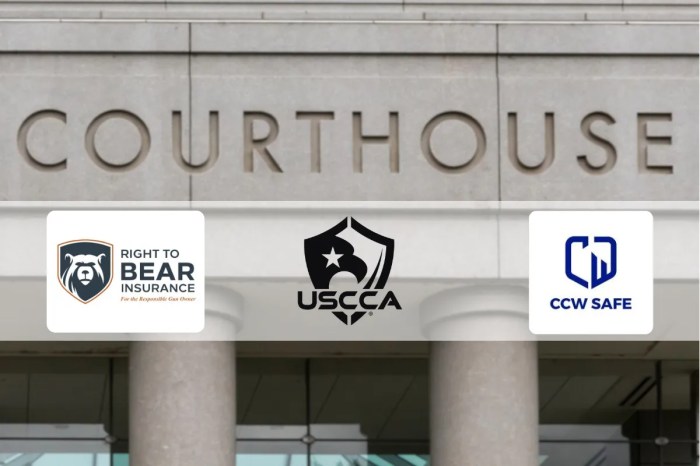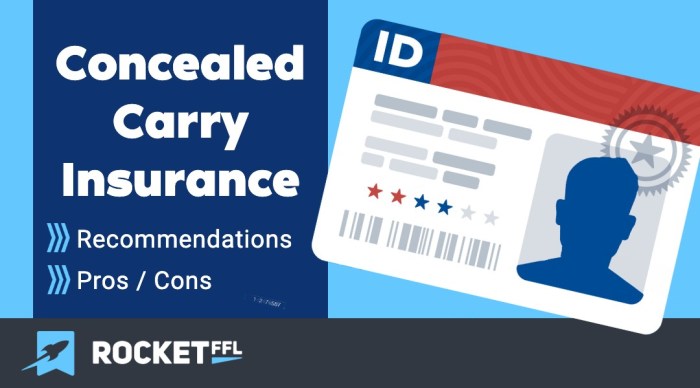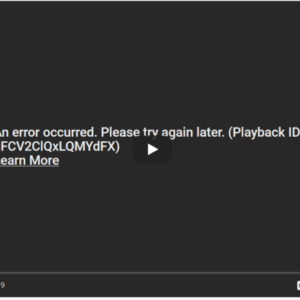Top 5 Concealed Carry Insurance: Navigating the world of concealed carry comes with responsibilities, and securing the right insurance is paramount. This isn’t just about covering legal fees; it’s about peace of mind knowing you’re protected if things go sideways. We’re diving deep into the top five concealed carry insurance providers, comparing coverage, costs, and customer experiences to help you make the best choice for your situation. Forget the jargon – we’re breaking it all down in plain English.
Choosing the right concealed carry insurance isn’t a decision to be taken lightly. Factors like your location, the type of firearm you carry, and your personal risk profile all play a significant role in determining premiums and coverage. Understanding the nuances of different policies, from liability coverage to legal defense, is crucial to ensuring you’re adequately protected. This guide will help you navigate the complexities and find the perfect fit for your needs.
Understanding Concealed Carry Insurance: Top 5 Concealed Carry Insurance

Source: concealedcarrysociety.com
Carrying a concealed firearm comes with significant responsibility, and understanding the potential legal and financial ramifications is crucial. Concealed carry insurance offers a safety net, protecting you from the costs associated with self-defense incidents. This isn’t about avoiding responsibility; it’s about mitigating the financial burden that can unexpectedly arise from a justified use of force. Choosing the right policy requires careful consideration of various factors and a clear understanding of the different types of coverage available.
Types of Concealed Carry Insurance
Concealed carry insurance policies typically fall into two main categories: self-defense liability coverage and supplemental coverage. Self-defense liability insurance is the core component, providing legal defense and financial protection if you’re involved in a shooting incident where you’re legally justified in using your firearm. Supplemental coverage often includes additional benefits such as bail bonds, legal representation for related charges, and crisis response assistance. The specific benefits offered vary widely among providers.
Key Features and Benefits of Concealed Carry Insurance
A comprehensive policy offers peace of mind by covering various aspects of a self-defense incident. This includes legal representation from experienced attorneys specializing in self-defense cases, which can be invaluable in navigating complex legal processes. Many policies also cover the costs of bail bonds, potentially preventing lengthy incarcerations before trial. Furthermore, some insurers provide crisis response assistance, connecting you with support services in the aftermath of a traumatic event. The coverage of legal fees, court costs, and potential settlements is a significant benefit, as these expenses can quickly escalate into substantial amounts.
Coverage Limits and Exclusions
Coverage limits vary greatly depending on the insurer and the specific policy. Some policies might offer a few thousand dollars in legal defense coverage, while others may provide millions. It’s crucial to review the policy documents carefully to understand the specific limits. Exclusions are also important to consider. Most policies will exclude coverage for intentional acts, illegal activities, or incidents outside the scope of self-defense. Additionally, some policies may have geographical limitations, excluding coverage in certain areas or countries. Understanding these limitations is essential for making an informed decision.
Comparison of Concealed Carry Insurance Providers
Choosing the right provider requires comparing various factors, including price, coverage details, and customer reviews. Below is a comparison of five different concealed carry insurance providers. Note that pricing and specific coverage details are subject to change, and this table reflects general information based on publicly available data at the time of writing. Always verify directly with the provider for the most up-to-date information.
| Provider | Annual Price (approx.) | Coverage Details | Customer Reviews (Summary) |
|---|---|---|---|
| USCCA | $100 – $300 | Self-defense liability, legal defense, bail bond, crisis response | Generally positive, some complaints about claim processing speed. |
| Concealed Carry Insurance | $80 – $200 | Self-defense liability, legal defense, supplemental benefits | Mixed reviews, some praise for customer service, others report issues with coverage. |
| Second Call Defense | $100 – $250 | Self-defense liability, legal defense, crisis response, training resources | Positive reviews, strong emphasis on member support. |
| Armed American Radio | $75 – $150 | Self-defense liability, legal defense, bail bond | Mostly positive, but some concerns regarding policy clarity. |
| CCW Safe | $120 – $300 | Self-defense liability, legal defense, supplemental benefits, training resources | High customer satisfaction ratings, known for responsive customer service. |
Factors Influencing Insurance Costs
Concealed carry insurance, while offering peace of mind, isn’t a one-size-fits-all proposition. The cost of your premium hinges on several key factors, and understanding these can help you shop for the best and most affordable coverage. Let’s delve into the elements that shape your insurance costs.
Age
Age is a significant factor in determining concealed carry insurance premiums. Generally, younger individuals, particularly those in their late teens and early twenties, tend to pay higher premiums. This is because statistically, this demographic is associated with a higher risk of accidents and incidents. Insurance companies use actuarial data to assess risk, and higher risk translates to higher premiums. Conversely, older individuals, with a longer and presumably safer driving and firearm handling history, often qualify for lower rates. Think of it like car insurance; younger drivers, statistically, have more accidents.
Location
Your geographical location plays a crucial role in your insurance cost. States with stricter gun laws and lower rates of gun-related incidents may offer lower premiums. Conversely, areas with higher crime rates and more lenient gun laws could lead to significantly higher premiums, reflecting the increased risk perceived by insurance providers. For instance, an individual in a rural area with a low crime rate might enjoy lower premiums compared to someone residing in a large city with a high crime rate.
Firearm Type
The type of firearm you carry can influence your insurance premium. Carrying a handgun typically commands lower premiums compared to carrying a more powerful weapon, such as a rifle or shotgun. This is because handguns are generally considered less lethal than rifles or shotguns, resulting in a lower perceived risk to the insurance company. The perceived potential for greater harm with a more powerful weapon naturally leads to a higher premium.
Claims History
Your claims history significantly impacts your premiums. Similar to car insurance, a clean record with no prior claims results in lower premiums. Conversely, filing a claim, even if justified, can lead to a substantial increase in your premium. Insurance companies view claims as indicators of risk, and repeated claims may even lead to policy cancellation.
Risk Assessment
Insurance companies conduct thorough risk assessments to determine premiums. This involves analyzing various factors, including your criminal history, training certifications (such as completion of a concealed carry course), and even your credit score. A clean record, extensive training, and a good credit score can significantly reduce your premium. Conversely, a poor credit score or a history of legal issues may increase your premiums.
Hypothetical Scenario
Let’s consider two individuals: Alex, a 25-year-old living in a high-crime urban area, carrying a high-capacity handgun with no prior training, and Beth, a 45-year-old residing in a rural area with a low crime rate, carrying a small handgun and possessing a valid concealed carry permit after completing a safety course. All other factors being equal, Beth would likely pay significantly less for her concealed carry insurance than Alex due to the differences in age, location, firearm type, and training. The risk assessment would clearly favor Beth.
Coverage and Exclusions

Source: concealedcarrysociety.com
Concealed carry insurance, while offering peace of mind, isn’t a magic bullet. Understanding exactly what’s covered and what’s excluded is crucial before you sign on the dotted line. This section breaks down the typical coverage you can expect and the situations where your policy might not offer protection.
Choosing the right concealed carry insurance policy hinges on understanding its scope. Different policies offer varying levels of coverage, so comparing several options is essential. This involves carefully examining both what’s included and, just as importantly, what’s specifically excluded.
Typical Coverage Offered
Concealed carry insurance policies primarily aim to protect you financially in the event of a self-defense shooting. This typically includes coverage for legal fees, bail bonds, and related expenses. Many policies also offer supplemental coverage for things like crisis response teams and media relations support. These additional services can be invaluable in navigating the complex legal and emotional aftermath of a self-defense incident. The specific amount of coverage varies depending on the policy and provider, with some offering limits as high as $1 million or more for legal defense. It’s important to note that coverage specifics are clearly defined within the policy documents themselves.
Examples of Situations Where Coverage Applies
Imagine this: you’re lawfully carrying your firearm and are confronted by an armed attacker. You use your firearm in self-defense, and the attacker is injured. Your concealed carry insurance would likely cover your legal fees, even if you’re facing a civil lawsuit. Another example: you’re involved in a justified shooting, but you’re still arrested and need to post bail. Your policy could cover these costs. Finally, the emotional toll of such an event is significant. Some policies offer access to mental health professionals, helping you navigate the psychological impact.
Common Exclusions
While concealed carry insurance provides significant protection, it’s crucial to understand the limitations. Most policies will exclude coverage for intentional acts, criminal acts, or situations where you were acting outside the law. For example, if you were involved in a bar fight and used your firearm, your insurance likely wouldn’t cover the resulting legal expenses. Similarly, if you were using your firearm illegally (for example, while intoxicated), coverage would likely be denied. Policies may also exclude certain types of claims, such as those related to property damage or injuries unrelated to self-defense. Reviewing the policy document meticulously is key to understanding these exclusions.
Frequently Asked Questions about Coverage and Exclusions
Here are some frequently asked questions about coverage and exclusions, along with concise answers.
Choosing from the top 5 concealed carry insurance options can be tricky, especially when unexpected life events arise. For instance, needing rehab can be financially stressful, and finding a facility that accepts your insurance is crucial; check out resources like rehabs that take cigna insurance to plan ahead. Ultimately, securing the right concealed carry insurance is just as important as securing your health.
- Question: Does my insurance cover medical expenses for the injured party? Answer: Generally, no. Most concealed carry insurance policies primarily focus on legal defense costs, not medical bills for the other party involved.
- Question: What if I’m found guilty of a crime? Answer: Coverage is typically voided if you’re found guilty of a crime related to the incident. The policy will usually specify the exact circumstances under which coverage is terminated.
- Question: Does the insurance cover my firearm? Answer: Usually not. This is typically covered by separate homeowners or renters insurance.
- Question: What happens if I use my firearm outside of self-defense? Answer: Your insurance likely won’t cover you if the use of your firearm was not in self-defense, or if it was used illegally.
- Question: Is there a waiting period before coverage begins? Answer: Yes, many policies have a waiting period, typically 30 days, before coverage is fully active.
Choosing the Right Insurance Provider
Selecting the right concealed carry insurance provider is crucial; it’s about finding a company that offers comprehensive coverage, reliable customer service, and a straightforward claims process. A poorly chosen provider can leave you vulnerable in a worst-case scenario, so careful research is paramount. This section will guide you through the process of selecting the best fit for your needs.
Choosing the right concealed carry insurance provider involves a multifaceted approach that goes beyond simply comparing prices. Understanding the nuances of customer service, claims handling, and policy details is essential to ensuring you’re adequately protected. Ignoring these aspects can lead to significant problems down the line.
Customer Service and Claims Handling
Exceptional customer service and a smooth claims process are critical aspects of any insurance policy, especially when dealing with the high-stakes situation of a self-defense incident. A responsive and helpful provider can significantly ease the stress during a challenging time. Look for providers with readily available customer support channels, such as phone, email, and online chat, and positive customer reviews highlighting their responsiveness and efficiency in handling claims. Consider providers with a history of fair and timely claim settlements, as this indicates a commitment to their policyholders. For example, a provider with a high customer satisfaction rating and readily available online resources for claim filing is a positive indicator.
Policy Details and Terms and Conditions, Top 5 concealed carry insurance
Before committing to any policy, meticulously review the policy details and terms and conditions. Pay close attention to the specific coverage offered, exclusions, and any limitations on liability. Understand the definition of “self-defense” within the policy, as this can vary significantly between providers. Look for clear and concise language; if anything is unclear, contact the provider directly for clarification. Ignoring this crucial step can lead to unexpected gaps in coverage or disputes during a claim. For instance, a policy might exclude certain types of weapons or situations, which could leave you financially exposed.
Obtaining and Comparing Quotes
Obtain quotes from multiple providers to compare their offerings. This allows you to assess the value and coverage provided relative to the premium cost. Many providers offer online quote tools that simplify this process. When comparing quotes, ensure you are comparing policies with similar coverage levels to avoid making an apples-to-oranges comparison. Consider factors beyond the premium cost, such as the provider’s reputation, customer service record, and claims handling process. For example, you might find one provider offers a slightly higher premium but has a significantly better reputation for claim settlements.
Checklist for Selecting a Concealed Carry Insurance Provider
Selecting a concealed carry insurance provider requires careful consideration of several factors. The following checklist can assist you in making an informed decision:
- Coverage Amount: Ensure the policy provides sufficient coverage to address potential legal fees, medical expenses, and other costs associated with a self-defense incident.
- Coverage Exclusions: Carefully review the policy exclusions to understand any limitations on coverage.
- Customer Service: Research the provider’s reputation for customer service and responsiveness.
- Claims Process: Investigate the provider’s claims handling process and the speed and efficiency of claim settlements.
- Policy Terms and Conditions: Thoroughly review the policy’s terms and conditions to understand the provider’s obligations and your responsibilities.
- Premium Cost: Compare the premium costs of different providers offering similar coverage levels.
- Reputation and Reviews: Check online reviews and ratings to gauge the provider’s reputation and customer satisfaction.
- Financial Stability: Ensure the provider is financially stable to ensure they can meet their obligations in the event of a claim.
Legal Considerations and Self-Defense
Carrying a concealed firearm is a serious responsibility, fraught with legal complexities. Understanding the legal ramifications of using your firearm in self-defense is paramount, not just for your safety, but to avoid potentially devastating legal consequences. This section explores the crucial intersection of self-defense, concealed carry laws, and the role of insurance in navigating these potentially complex situations.
The legal framework surrounding self-defense with a firearm varies significantly by state and even locality. A crucial understanding of your specific jurisdiction’s laws—including the “stand your ground” laws, duty to retreat requirements, and the use of deadly force—is essential. Ignoring these laws can lead to criminal charges, civil lawsuits, and significant financial burdens, even if you acted in what you believed was self-defense. This is where concealed carry insurance can provide invaluable support.
Understanding State and Local Concealed Carry Laws
Each state possesses its own unique set of laws governing the carrying of concealed firearms. These laws dictate everything from the licensing process and permitted carry locations to the justifiable use of force. For instance, some states are “shall-issue” states, meaning that a license is granted to any applicant who meets the basic requirements, while others are “may-issue” states, granting more discretion to issuing authorities. Similarly, laws regarding the use of deadly force vary widely; some states have “stand your ground” laws, which eliminate the duty to retreat before using deadly force, while others maintain a duty to retreat if possible. Before carrying a concealed firearm, thorough research into your specific state and local laws is absolutely non-negotiable. This may involve consulting with a legal professional specializing in firearms law.
The Role of Concealed Carry Insurance in Legal Defense
Concealed carry insurance acts as a crucial safety net in the event of a self-defense shooting. While it doesn’t guarantee a favorable outcome, it significantly enhances your chances of a successful legal defense. The insurance typically covers legal fees, bail bonds, and other expenses associated with defending yourself against criminal charges or civil lawsuits. It can also provide access to experienced legal counsel specializing in self-defense cases, ensuring you receive the best possible representation. The peace of mind this offers is invaluable, allowing you to focus on the immediate aftermath of a potentially traumatic event rather than the overwhelming financial and legal anxieties.
Examples of Beneficial Insurance Coverage in Legal Proceedings
Consider a scenario where an individual uses their firearm in self-defense against an armed attacker. Even if the individual is found to have acted lawfully, they may still face criminal charges or a civil lawsuit from the attacker or their family. Concealed carry insurance would cover the costs associated with defending against these charges, including attorney fees, expert witness fees, and court costs. In another example, a person might accidentally discharge their firearm, causing injury or property damage. Even if the incident was unintentional, they could still face significant legal liabilities. Concealed carry insurance would provide coverage for these unexpected expenses, potentially saving them from financial ruin. These scenarios highlight the critical role insurance plays in mitigating the risks associated with carrying a concealed firearm.
Final Summary

Source: rocketffl.com
Securing the right concealed carry insurance is a critical step in responsible gun ownership. By carefully considering the factors we’ve Artikeld – coverage, cost, customer reviews, and legal implications – you can make an informed decision that provides you with the necessary protection. Remember, this isn’t just about insurance; it’s about peace of mind, knowing you’re prepared for any eventuality. So, do your homework, compare options, and choose the policy that best suits your individual circumstances and provides the ultimate safety net.

